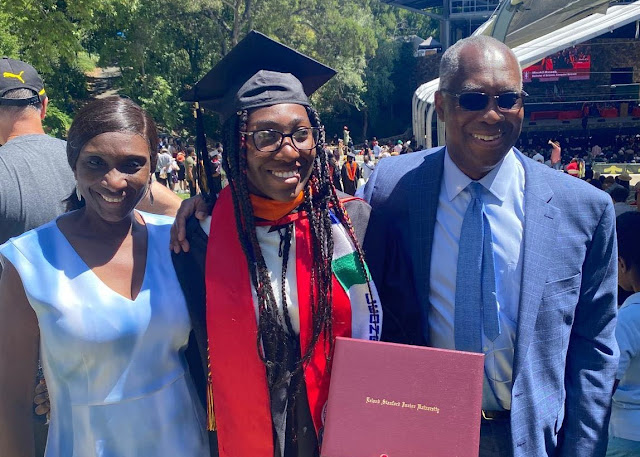Vitabu Reads | Manners Maketh Man: Adventures of a Bo School Boy
At 104-pages Siaka Kroma’s novel Manners Maketh Man: Adventures of a Bo School Boy is a fraction of Sama Banya’s 484-page autobiography Looking Back, My Life and Times, but the cross references and descriptions of Bo Town and Bo School are fascinating. Together, both books make a study of how one school enforced national consciousness in Sierra Leonean education.
In Banya’s story, it is the second week of March 1940 when he arrives at Bo School, which by then had only about 90 pupils enrolled. From Looking Back, we learn that Bo School was patterned after the British public school system. The boys were divided into dormitories named after European cities: London, Liverpool, Paris, and Manchester. Equally, we also learn about the school’s original mission to integrate the “sons and nominees of chiefs” from Northern and Southern Sierra Leone, “promoting nationally-unifying doctrines, beliefs, personalities, and languages.”
One of the highlights in Banya’s “Bo School Years” chapter is the unforgettable train ride between Freetown and Pendembu, with students from Bo School belting out folk songs of the day until they were too hoarse or exhausted to sing.
Kroma’s hero is Bandami Senessie.
Bandami was probably about 12-14 years old when he was put on the train for Bo in the 1950s, with a bushel of rice and a wooden box holding all his clothes.
Bo in Kroma’s novel is still very much a colonial town, with Europeans living in areas that were separated from black Sierra Leoneans.
Although Kroma’s book is filled with funny anecdotes about school life, such as “The Bully of New Gerihun Road,” “Night Raiders of Gerihun Road,” “Kindo the Robber,” “Amigo and the fight for the Class Bucket,” and the sardonically-named “Kondor Progressive Union,” whose members didn’t get the dangers and risks associated with eating contests, there’s no further mention about the residential segregation practiced by the British.
Notably, Kroma skips briskly over housing segregation, and how that was linked to the nationalism that led to independence, to Bandami’s last year at Bo School circa 1960, a year before Sierra Leone’s real flag independence from Britain in April 1961.
When we next meet Bandami, it is now 1976. He and many of his classmates have returned for the annual Old Bo Boys Association (OBBA) homecoming. A revered alumnus had been executed by the state in 1975 and Kroma reproduces a letter the ill-fated politician purportedly wrote before his execution.
Kroma also notes another real event in his epilogue: the tribute paid by a central banker, also a Bo School alumnus, who would die years later, a suspected victim of the same political regime that Bandami queries. Perhaps Kroma would come back in another book to explore the loss of political innocence for contemporary Bo School boys.
Manners Maketh Man: Adventures of a Bo school Boy
Paperback: 110 pages
Publisher: Sierra Leonean Writers Series (December 9, 2014)
In Banya’s story, it is the second week of March 1940 when he arrives at Bo School, which by then had only about 90 pupils enrolled. From Looking Back, we learn that Bo School was patterned after the British public school system. The boys were divided into dormitories named after European cities: London, Liverpool, Paris, and Manchester. Equally, we also learn about the school’s original mission to integrate the “sons and nominees of chiefs” from Northern and Southern Sierra Leone, “promoting nationally-unifying doctrines, beliefs, personalities, and languages.”
One of the highlights in Banya’s “Bo School Years” chapter is the unforgettable train ride between Freetown and Pendembu, with students from Bo School belting out folk songs of the day until they were too hoarse or exhausted to sing.
Kroma’s hero is Bandami Senessie.
Bandami was probably about 12-14 years old when he was put on the train for Bo in the 1950s, with a bushel of rice and a wooden box holding all his clothes.
“In Bo, after an uneventful train ride…I marveled at the houses, the number of streets, and the size of the town, which spread out on all sides for as far as the eyes could see. …Bo Town spread over seven hills, eight if you counted the European section known as ‘Reservation.’” pp.29
Bo in Kroma’s novel is still very much a colonial town, with Europeans living in areas that were separated from black Sierra Leoneans.
Although Kroma’s book is filled with funny anecdotes about school life, such as “The Bully of New Gerihun Road,” “Night Raiders of Gerihun Road,” “Kindo the Robber,” “Amigo and the fight for the Class Bucket,” and the sardonically-named “Kondor Progressive Union,” whose members didn’t get the dangers and risks associated with eating contests, there’s no further mention about the residential segregation practiced by the British.
Notably, Kroma skips briskly over housing segregation, and how that was linked to the nationalism that led to independence, to Bandami’s last year at Bo School circa 1960, a year before Sierra Leone’s real flag independence from Britain in April 1961.
When we next meet Bandami, it is now 1976. He and many of his classmates have returned for the annual Old Bo Boys Association (OBBA) homecoming. A revered alumnus had been executed by the state in 1975 and Kroma reproduces a letter the ill-fated politician purportedly wrote before his execution.
Kroma also notes another real event in his epilogue: the tribute paid by a central banker, also a Bo School alumnus, who would die years later, a suspected victim of the same political regime that Bandami queries. Perhaps Kroma would come back in another book to explore the loss of political innocence for contemporary Bo School boys.
Manners Maketh Man: Adventures of a Bo school Boy
Paperback: 110 pages
Publisher: Sierra Leonean Writers Series (December 9, 2014)




Vitabu is doing a great job of introducing Salone literary treasures to a global audience...
ReplyDeleteThanks for reading, Abdulai Walon-Jalloh
Delete